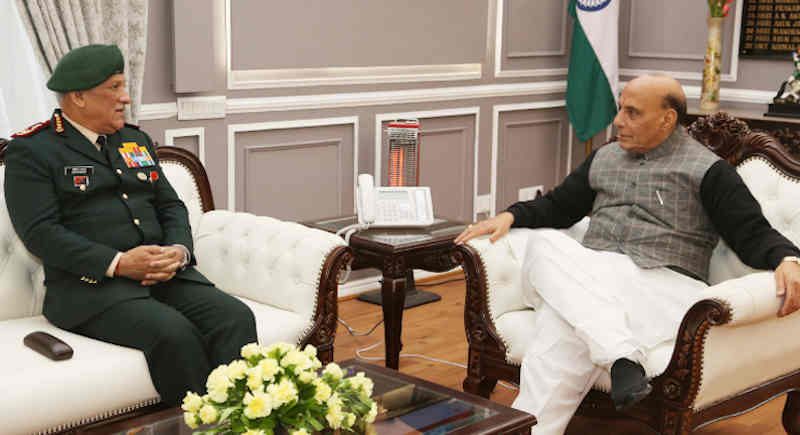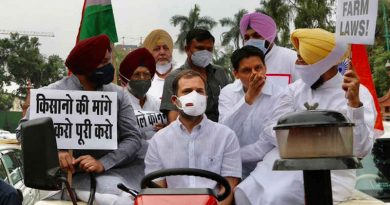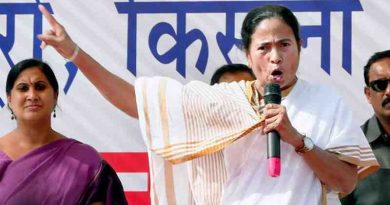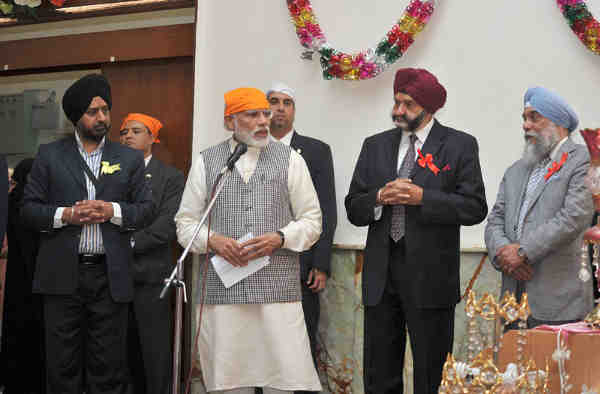Has Modi Govt Appointed New Defence Chief to Suppress Protests?
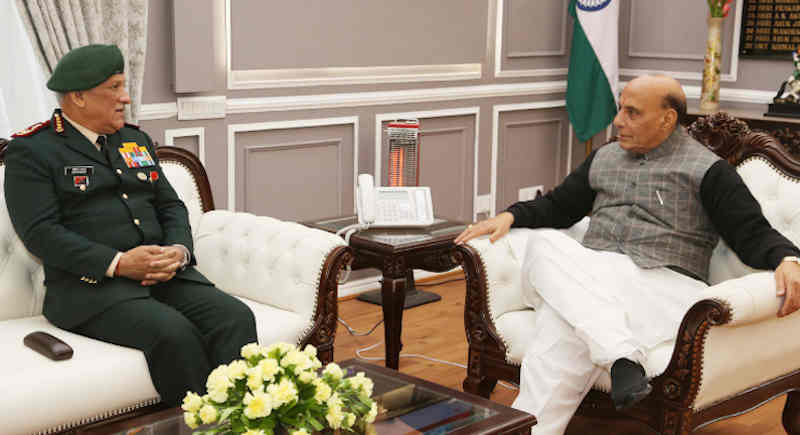
As countrywide protests against Modi and Shah have been happening in India for the past few weeks, people expect both of these authoritarian leaders to resign from their positions in the interest of over a billion people.
By Rakesh Raman
As nationwide protests are happening against the government headed by PM Narendra Modi, the traditional police force has failed to control the protesters.
Therefore, it is believed that the Modi government expedited the process of appointing the Chief of Defence Staff (CDS) and General Bipin Rawat has been appointed the CDS of the country.
Soon after assuming charge, Rawat held a meeting with important functionaries of Headquarters Integrated Defence Staff (Hq IDS) on January 1, 2020 to chalk out the plan of action for the new department.
Although the role of CDS is not yet clear, it is assumed that he will coordinate with the government to get its plans implemented by ensuring synergy between different defence units.
It appears from his views that Rawat’s immediate task will be to control the protesters who are currently raising their voice against Modi government’s discriminatory citizenship laws.
[ U.S. Slaps Sanctions on Cruel Cuban Leader, Warns Modi and Shah of India ]
Recently, Rawat criticized the opposition leaders who are spearheading these protests. He interfered in the political process by saying that leaders are not those who lead people in inappropriate directions, as he commented against the violent protests against the amended Citizenship Act.
With such hostile views against the citizens who are protesting in a democratic manner, Rawat would like to suppress the protests while he has indicated that he will obey the government’s orders.
As the CDS will perform the role of the military advisor for the government, it is expected that the new department will work on the lines of Pakistan’s Inter-Services Intelligence (ISI) to handle a range of internal and external security challenges.
[ PolCom Political Communications and Research Services ]
Currently, hundreds of thousands of people in India are protesting against the Citizenship Amendment Act (CAA), National Population Register (NPR), and National Register of Citizens (NRC) announced by Modi and his Home Minister Amit Shah. Protesters demand that the government should immediately revoke its decisions related to CAA, NPR, and NRC.
However, during the past few days, the demands of protesters include the resignations of Modi and Shah who have been announcing a series of anti-Muslim laws that will also affect other citizens of the country.
The chattering classes in India argue that Modi and Shah – who both have criminal records – do not have any right to make any laws that people oppose so vehemently. They compare them with street goons who have gained political power deceptively.
Modi’s party BJP first manipulates electronic voting machines (EVMs) to win elections deceptively and then take unconstitutional decisions with its majority in Parliament.
[ Anti-Muslim Citizenship Bill: U.S. Plans to Impose Sanctions on Amit Shah ]
Both Modi and Shah – who were accused of crimes including murders – are currently controlling all the government affairs in India. As Chief Minister of Gujarat, Modi was an accused in the Gujarat riots of 2002 in which nearly 2000 people – mostly Muslims – were killed. And Amit Shah was an accused in the case related to the death of judge B.H. Loya who had died in mysterious circumstances.
With the ill-gotten majority in elections, Modi and BJP own the President, the Parliament, law enforcement agencies, and Indian courts including the Supreme Court of India as their personal property.
People also argue that Modi’s BJP – which received only about 20% of the votes in 2019 Lok Sabha election from the Indian population – is not a legitimate body to make laws for all the 1.4 billion people of India. It is the flawed political system in India which has given extreme powers to Modi and BJP.
As countrywide protests against Modi and Shah have been happening in India for the past few weeks, people expect both of these authoritarian leaders to resign from their positions in the interest of over a billion people.
By Rakesh Raman, who is a national award-winning journalist and social activist. He is the founder of a humanitarian organization RMN Foundation which is working in diverse areas to help the disadvantaged and distressed people in the society. He also creates and publishes a number of digital publications on different subjects.
💛 Support Independent Journalism
If you find RMN News useful, please consider supporting us.

